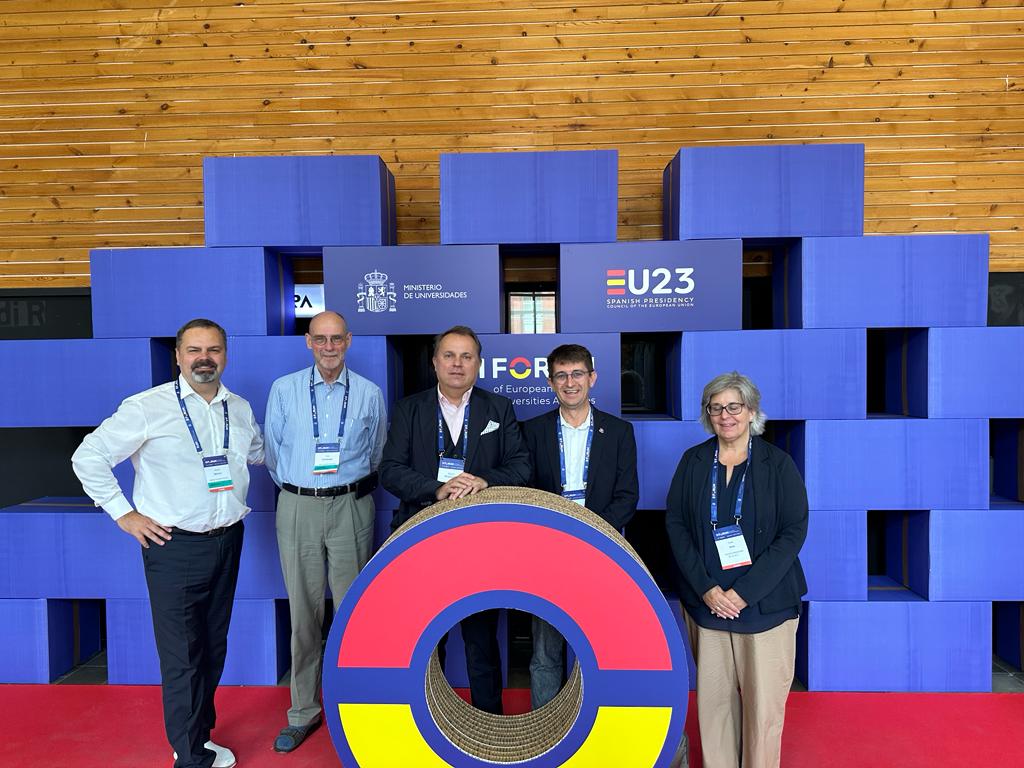17/09/2023
The URV has taken part in the 2nd European University Alliances Forum
Representatives of 430 European universities met in Barcelona to discuss the challenges and opportunities facing university alliances

Representatives of 430 European universities met in Barcelona to discuss the challenges and opportunities facing university alliances
The rector of the Universitat Rovira i Virgili, Josep Maria Pallarès, took part in the 2nd European University Alliances Forum. Held on 14 and 15 September, this event brought together representatives of 430 universities from 35 countries at the Fabra i Coats facilities in Barcelona and served as a platform for the exchange of ideas and dialogue on the challenges and opportunities facing European university alliances.
Taking advantage of the context of the Forum, the ACUP – Catalan Association of Public Universities – also organised, the day before, a seminar on the construction of new university leaderships to transform Europe in order to inform society about the alliances in which public universities participate. Joan-Miquel Canals, the URV’s Commissioner for International Networks, took part to present the Aurora Alliance. Xavier Càmara moderated a round table on the social challenges posed by the promotion of alliances for the progress, welfare and competitiveness of Catalonia.
The primary objective of these partnerships is to promote European identity and values, and foster academic excellence and institutional transformation by encouraging the mobility of members of the university community, the exchange of experience and knowledge, and the collaborative development of educational and research programmes.
The Forum also addressed issues such as financial sustainability, quality assurance and collaboration with higher education institutions in other countries. In addition, particular attention was paid to the need to create and maintain these spaces for continuous dialogue between alliances, representatives of the European Commission, member states, students and other interested groups in order to strengthen the impact and coherence of these initiatives at the European level.
